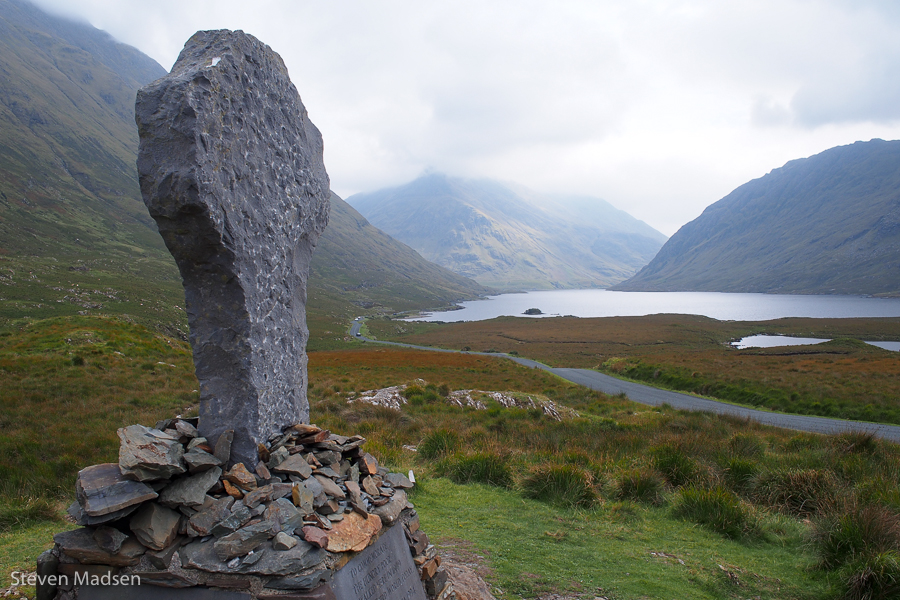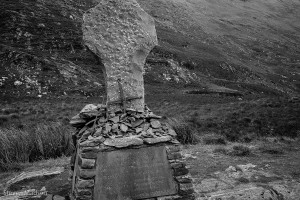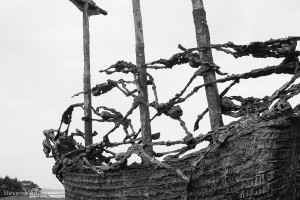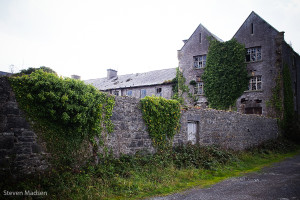The safest road to hell is the gradual one–the gentle slope, soft underfoot, without sudden turnings, without milestones, without signposts.
C.S. Lewis
In 1845, the Irish potato crop failed and the country entered a period of unending hardship and famine that they call the Great Hunger. Travelling through western Ireland, we saw hills scarred by abandoned potato farrows that once produced the staple diet for the Irish people. Productive land that never again produced a sustainable potato crop and is now turned over to sheep and cattle, and remains devoid of the families that once lived here.
Throughout the Great Hunger, the poor died in their thousands and many thousands more chose to immigrate to Australia, Canada and the United States to seek a better life for their families. Even on these voyages of hope, sickness spread rapidly in the cramped and stagnant living conditions and these deaths led many people to call their vessels coffin ships. A bronze sculpture in Murrisk gives graphic voice to their suffering, skeletons flying from the tall masks a reminder that famine still exists in our ever richer world.
In the Doo Lough Valley, 600 starving Irish tenant farmers walked 12 miles to Delphi Lodge seeking food from their landlord. Angry at the interruption to his fine meal, he sent them home and over 200 perished on the return march some literally blown into the bog by the strong icy wind. How an educated and enlightened gentry looked out on deprivation and suffering without pity or remorse for their tenants and fellow humanity is unimaginable to me. Yet similar conditions exist throughout the world in our own enlightened times.
History always repeats if we let it.




